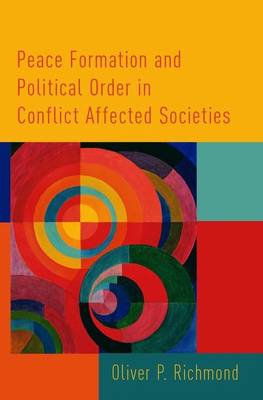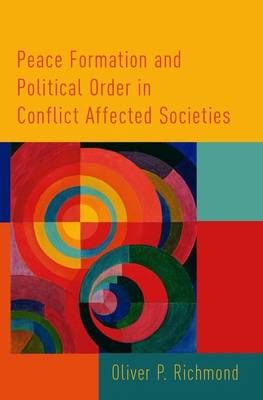
- Afhalen na 1 uur in een winkel met voorraad
- Gratis thuislevering in België vanaf € 30
- Ruim aanbod met 7 miljoen producten
- Afhalen na 1 uur in een winkel met voorraad
- Gratis thuislevering in België vanaf € 30
- Ruim aanbod met 7 miljoen producten
Zoeken
Peace Formation and Political Order in Conflict Affected Societies
Oliver P Richmond
Paperback | Engels
€ 69,45
+ 138 punten
Uitvoering
Omschrijving
As Oliver Richmond explains, there is a level to peacemaking that operates in the realm of dialogue, declarations, symbols and rituals. But after all this pomp and circumstance is where the reality of security, development, politics, economics, identity, and culture figure in; conflict, cooperation, and reconciliation are at their most vivid at the local scale. Thus local peace operations are crucial to maintaining order on the ground even in the most violent contexts. However, as Richmond argues, such local capacity to build peace from the inside is generally left unrecognized, and it has been largely ignored in the policy and scholarly literature on peacebuilding. In Peace and Political Order, Richmond looks at peace processes as they scale up from local to transnational efforts to consider how to build a lasting and productive peace. He takes a comparative and expansive look at peace efforts in conflict situations in countries around the world to consider what local voices might suggest about the inadequacy of peace processes engineered at the international level. As well, he explores how local workers act to modify or resist peace processes headed by international NGOs, and to what degree local actors have enjoyed success in the peace process (and how they have affected the international peace process).
Specificaties
Betrokkenen
- Auteur(s):
- Uitgeverij:
Inhoud
- Aantal bladzijden:
- 264
- Taal:
- Engels
Eigenschappen
- Productcode (EAN):
- 9780190237646
- Verschijningsdatum:
- 22/03/2016
- Uitvoering:
- Paperback
- Formaat:
- Trade paperback (VS)
- Afmetingen:
- 155 mm x 231 mm
- Gewicht:
- 317 g

Alleen bij Standaard Boekhandel
+ 138 punten op je klantenkaart van Standaard Boekhandel
Beoordelingen
We publiceren alleen reviews die voldoen aan de voorwaarden voor reviews. Bekijk onze voorwaarden voor reviews.











